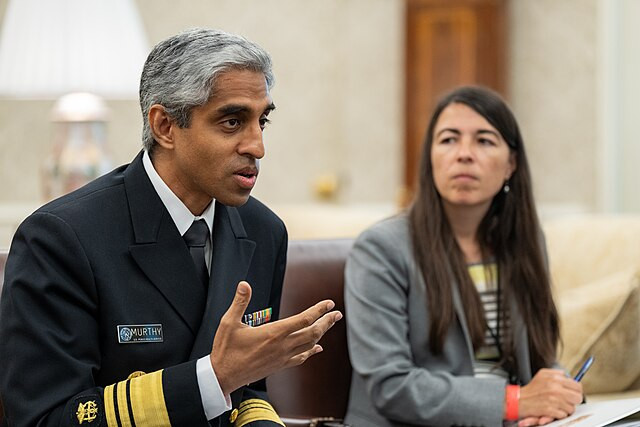U.S. Surgeon General Vivek Murthy has declared gun violence a national public health crisis, urging immediate and comprehensive action. This unprecedented advisory highlights the profound impact of firearm-related incidents on American society and proposes a public health approach to tackle the issue effectively.
The 40-page advisory from Murthy outlines the grim reality of gun violence in the United States, detailing its pervasive effects on victims, families, and communities. "It is up to us to take on this generational challenge with the urgency and clarity the moment demands," Murthy stated, emphasizing the critical need for action to protect future generations.
Gun violence has emerged as the leading cause of death for U.S. children and adolescents since 2020, surpassing car accidents. The advisory cites a recent national survey indicating that 54% of U.S. adults or their family members have experienced a firearm-related incident. Furthermore, nearly six in ten adults express concern about the possibility of a loved one becoming a victim of gun violence.
Murthy's recommendations, while not legally binding, call for increased federal funding for gun violence prevention research, greater community investment in educational and mental health programs, and nationwide policy changes, including an assault weapons ban and universal background checks. He compares this approach to successful public health campaigns against tobacco use and motor vehicle fatalities, which have significantly reduced related deaths over the past decades.
The advisory underscores the disproportionate impact of gun violence across various demographic groups. Black Americans, for instance, had the highest firearm homicide rates in 2022, while firearm suicide rates were notably high among white individuals over 45 and American Indian and Alaska Natives under 45. Additionally, gun violence disproportionately affects veterans, male children, and men, with firearms used in about 50% of intimate partner violence-related homicides.
Murthy's advisory comes amid a politically charged environment, with the National Rifle Association (NRA) historically opposing the framing of gun violence as a public health issue. The NRA has successfully lobbied for legislation that restricted federal funding for gun violence research for decades. Despite this, Murthy, who faced significant opposition from the NRA during his initial nomination under President Obama, remains steadfast in his commitment to addressing gun violence through a public health lens.
The timing of the advisory is significant, following a weekend of mass shootings across the U.S., just days before the first presidential debate between President Joe Biden and former President Donald Trump, and a week after the Supreme Court upheld a federal ban on guns for domestic abusers. The advisory aims to elevate the discourse around gun violence, urging policymakers to prioritize evidence-based strategies to mitigate this crisis.
The advisory paints a stark picture of the scale of gun violence in the U.S., noting that 48,204 people died from firearm-related injuries in 2022. The rate of firearm-related suicide increased by 20% between 2012 and 2022, with the highest rates among young people aged 10 to 34. The advisory also highlights the collective toll on mental health, with widespread stress and anxiety linked to gun violence exposure.
Murthy advocates for a public health approach to address gun violence, emphasizing the need for comprehensive strategies that include research, community interventions, and policy changes. He points to the successes of past public health campaigns in reducing smoking rates and motor vehicle fatalities as models for addressing gun violence.
However, the path to implementing these recommendations is fraught with political challenges. While some states have enacted laws requiring universal background checks, secure firearm storage, and red flag laws, achieving nationwide reforms requires Congressional action. Despite public support for stricter gun laws, a deeply divided Congress has struggled to pass comprehensive legislation.
Murthy's advisory also highlights the successful public health approaches used to combat tobacco use and improve motor vehicle safety, suggesting that similar strategies could curb firearm-related injuries and deaths. He concludes that addressing gun violence through a public health framework has the potential to save lives and improve community well-being.
The publication of this advisory has garnered support from various medical and public health organizations, which have praised the Surgeon General for raising awareness and calling for action. The American Medical Association lauded the advisory for its evidence-based approach to addressing firearm violence.
Whether this advisory will lead to significant policy changes remains to be seen. However, it represents a critical step in framing gun violence as a public health issue and underscores the urgency of addressing this crisis for the safety and well-being of all Americans.






